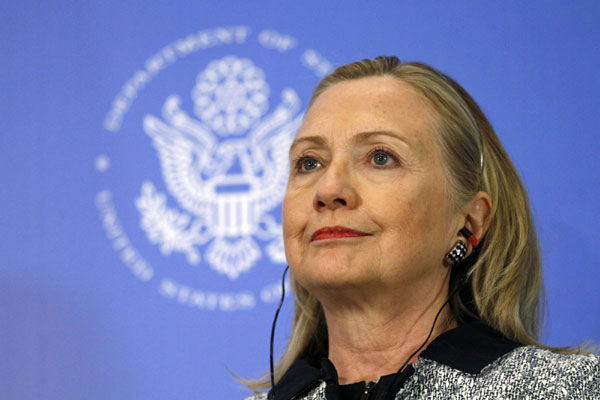
BRASILIA - The United States will maintain sanctions and other pressure on Iran as Tehran considers what it will bring to the table in the next round of talks over its nuclear program, US Secretary of State Hillary Clinton said on Monday.
Iran's foreign minister was quoted earlier as saying his country was ready to resolve all nuclear issues in the next round of talks with world powers if the West starts lifting sanctions.
 |
|
US Secretary of State Hillary Clinton waits to speak at Brazil's National Confederation of Industries (CNI) in Brasilia April 16, 2012. [Photo/Agencies] |
It was unclear whether Iranian Foreign Minister Ali Akbar Salehi was suggesting that sanctions be lifted before Iran takes steps to reassure the West over its nuclear activities, but Clinton made clear that would not be possible.
"I believe in action for action but I think in this case the burden of action falls on the Iranians to demonstrate their seriousness and we are going to keep the sanctions in place and the pressure on Iran as they consider ... what they'll bring to the table in Baghdad and we'll respond accordingly," Clinton told reporters in Brasilia when asked about Salehi's comments.
She was referring to the next round of talks between Iran and the major powers -- Britain, China, France, Russia, the United States and Germany -- scheduled for late May in Baghdad.
Both sides have said they were content with progress made in Saturday's talks in Istanbul which did not go into detail but, unlike earlier rounds of negotiations, stayed on the subject of Iran's nuclear program.
"We are going to take this one step at a time but clearly any process would have to have reciprocal expectations and actions and there has to be evidence by Iran that they would be seriously moving toward removing a lot of their nuclear ambiguity that exists now, that they would be much more open and transparent, and that they would take steps to respond to the UN Security Council resolutions and to the international community's concerns," Clinton said.
The United States and its allies suspect that Iran is using its civilian nuclear program as a cover to develop atomic bombs. Iran insists that its program is solely for civilian purposes such as electricity generation and medical uses.